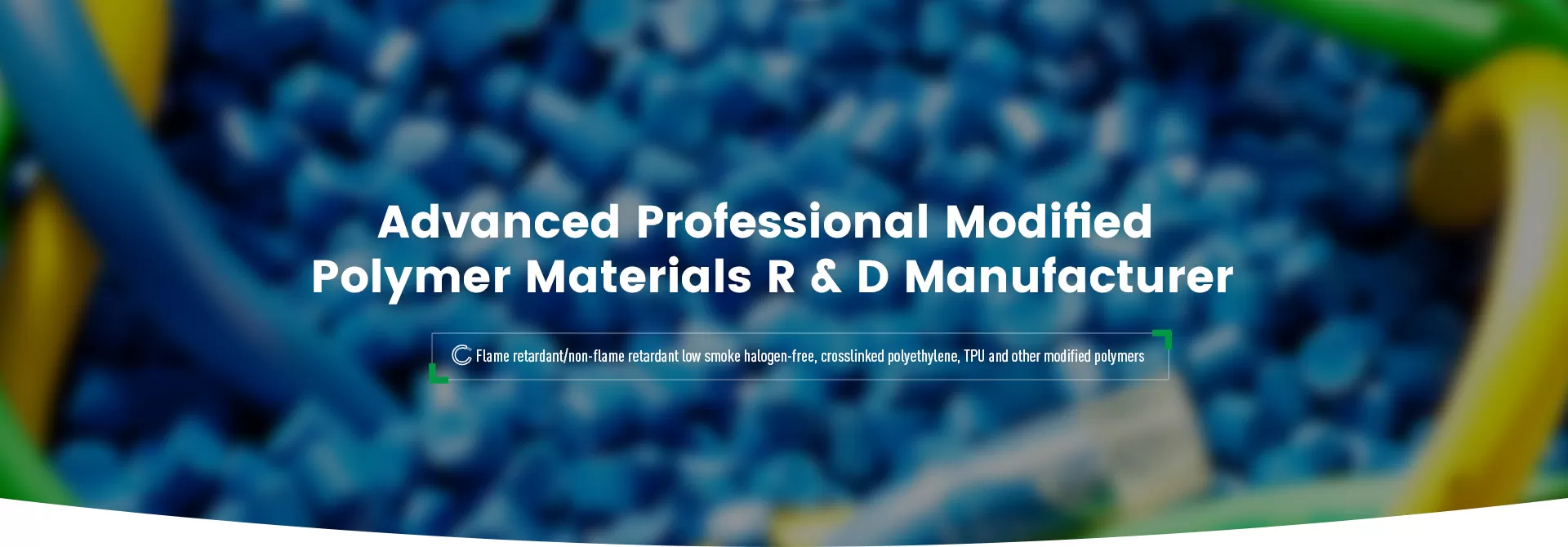
In modern industry, cable performance and reliability are critical to the stable operation of entire industrial systems. With its exceptional comprehensive properties, TPU cable jacket material has become the ideal choice for numerous demanding industrial applications.
TPU (Thermoplastic Polyurethane) is a unique elastomeric material whose molecular structure alternates between soft and hard segments.
This structure grants TPU a series of key advantages, including:
·Outstanding mechanical properties
·Extremely high abrasion resistance
·High tear strength
·Broad temperature tolerance range
·Excellent chemical resistance
·Superior weather and aging resistance
·High elasticity and flexibility
·Eco-friendly characteristics
These exceptional properties make TPU cable jacket indispensable solutions in the following sectors:
Cables in industrial robots, CNC machines, and conveyor systems undergo continuous bending, twisting, and drag chain movement. The superior abrasion resistance, mechanical stress tolerance, and oil resistance of TPU jackets ensure long-term reliability in high-dynamic applications, significantly reducing downtime and replacement costs.
Cables inside wind turbines—especially in the nacelle-to-tower transition zone—endure constant swaying, torsion, temperature fluctuations, and potential grease exposure. TPU jackets provide critical protection through their torsional endurance, cold resistance, weather resistance, and oil resistance, ensuring stable long-term power generation.
Equipment like excavators and tractors operate in dusty, muddy, oily, high-vibration environments with extreme temperature variations. TPU jackets deliver exceptional wear resistance, impact resistance, chemical corrosion resistance, and weathering protection, safeguarding cables against harsh conditions.
Diagnostic and therapeutic equipment require cables with extreme flexibility, cleanliness, non-toxicity (meeting biocompatibility standards), and resistance to disinfectant wiping. Medical-grade TPU materials meet these rigorous requirements.
Applications like outdoor lighting (LED landscape lights, streetlights), marine equipment (salt spray resistance), and mining rely on TPU’s UV resistance, hydrolysis resistance, weathering resistance, and chemical resilience to withstand environmental degradation.
TPU’s outstanding abrasion resistance and flexibility make it widely adopted for manufacturing charging station cables.

Compared to common cable jacket materials, TPU offers significant advantages:
vs. PVC: PVC suffers from low-temperature brittleness, plasticizer migration (causing hardening), limited eco-friendliness, and moderate oil resistance. TPU surpasses PVC in flexibility retention, cold resistance, oil resistance, wear resistance, and environmental compliance.
vs. PE (Polyethylene): While PE offers good chemical resistance and lower cost, it has poor abrasion resistance, limited high-temperature tolerance, and susceptibility to environmental stress cracking. TPU excels in mechanical strength and durability.
vs. General TPEs: Standard TPEs may be cheaper but fall short in abrasion resistance, oil resistance, high-temperature performance, and tear strength. TPU delivers superior protection.
Choosing TPU for cable jacketing is not merely a cost decision—it’s a strategic investment in long-term reliability, system safety, and reduced Total Cost of Ownership (TCO). In applications exposed to intense mechanical stress, extreme temperatures, chemical corrosion, or harsh outdoor conditions, TPU jackets provide an exceptional protective barrier. This ensures:
·Uncompromised core cable functionality
·Extended equipment service life
·Reduced failures and maintenance costs
TPU’s unmatched comprehensive performance solidifies its critical role in high-end and demanding cable applications. Selecting cables with TPU jackets for your critical equipment guarantees stable operation and sustainable long-term benefits.